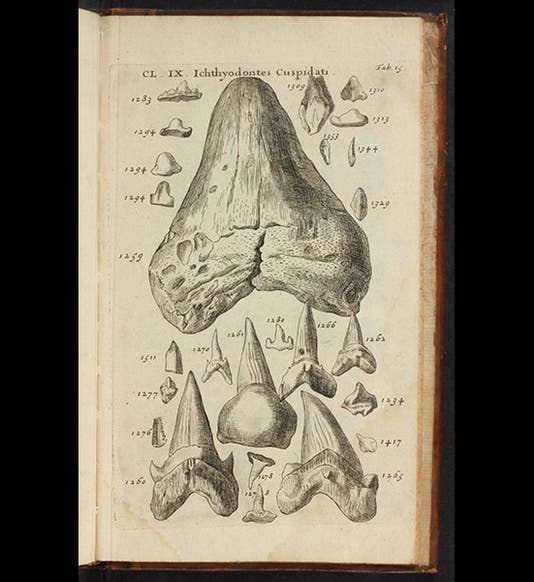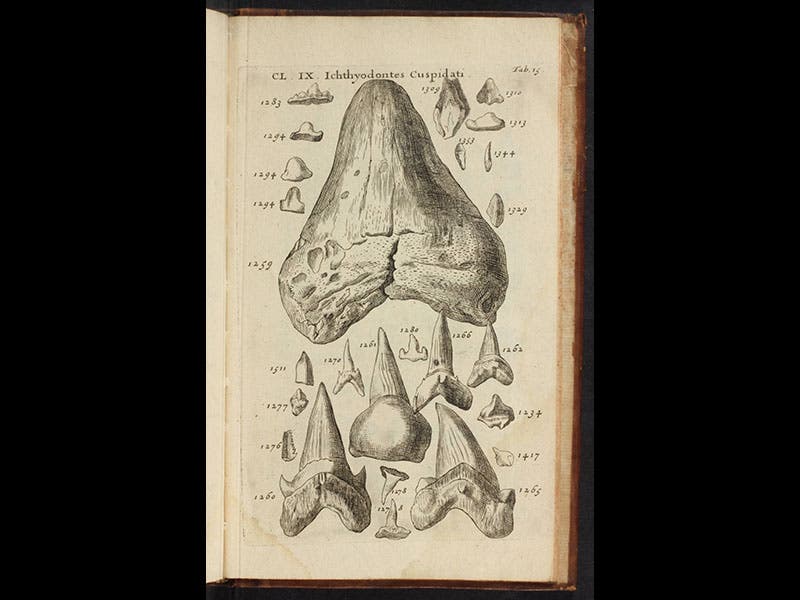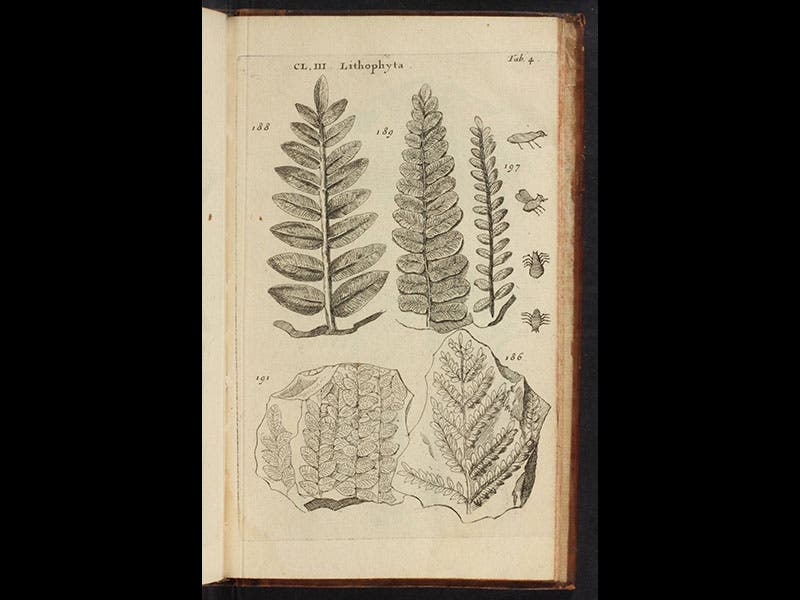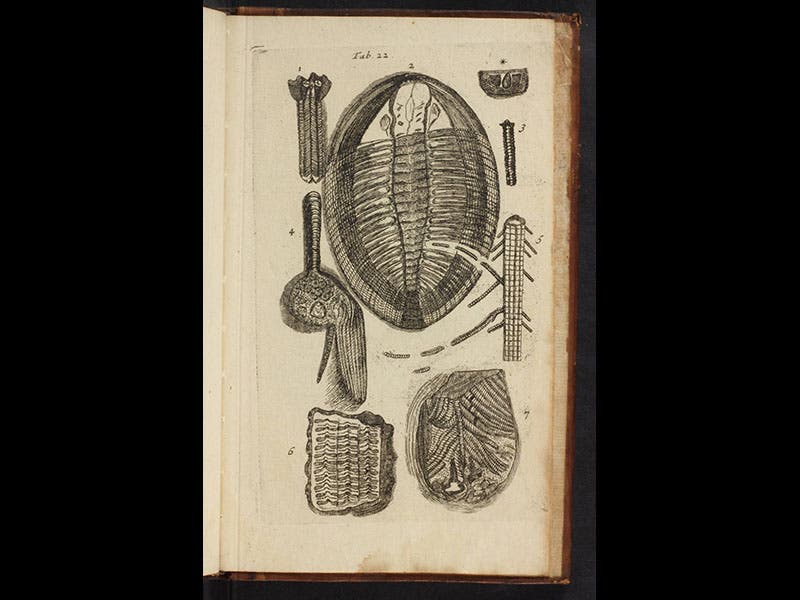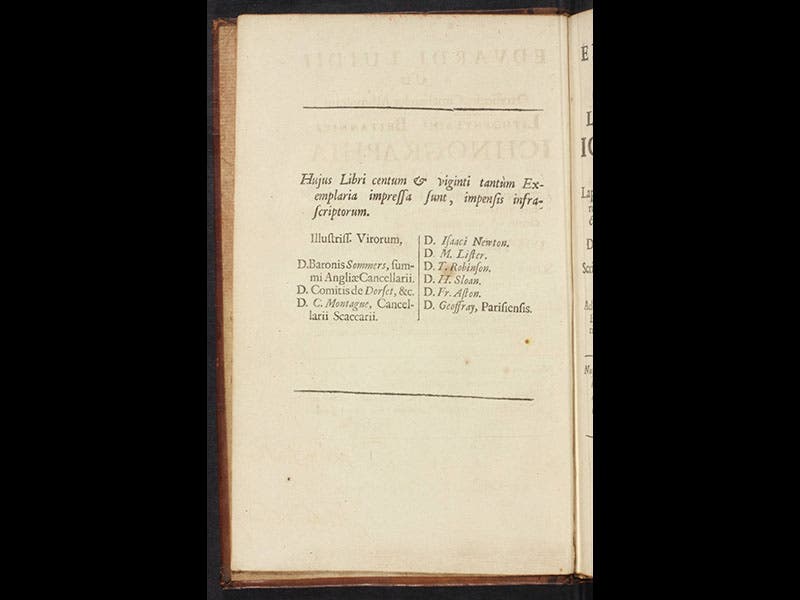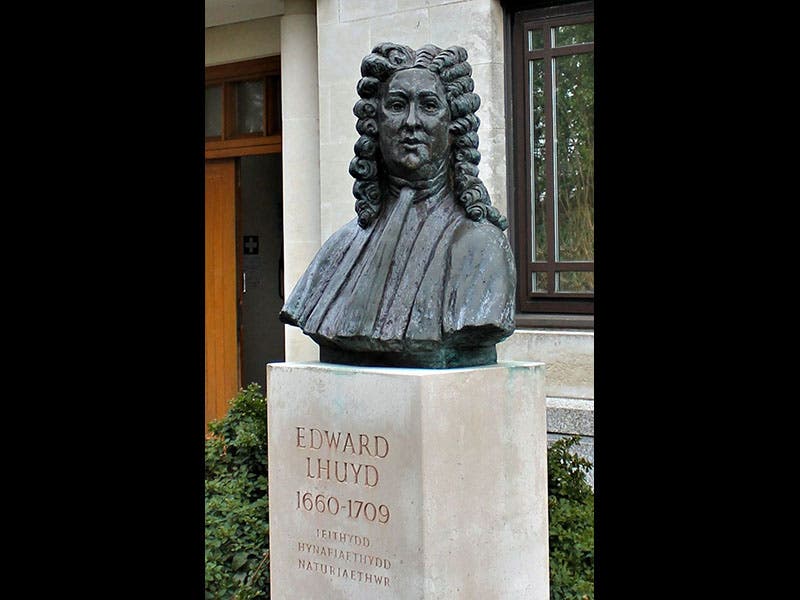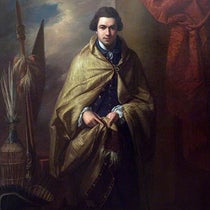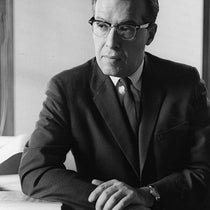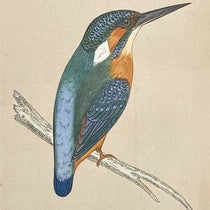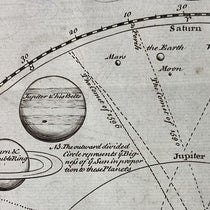Scientist of the Day - Edward Lhuyd
Edward Lhuyd, a Welsh naturalist, died June 30, 1709, at about age 49 (we don't know his date of birth). In 1683, Lhuyd became an assistant to the Keeper of the Ashmolean Museum, recently established at Oxford, and he was given the job of sorting out the figured stones (fossils) in the collection. He became Keeper himself in 1690, but he continued on with the project. He planned to publish an illustrated catalog of the Oxford fossils; then, on the suggestion of John Ray, he decided to expand it to a study of fossils from all over Great Britain--a Lithophylacii britannici ichnographia, as the eventual book would be titled: Illustrations of the Figured Stones of Britain (1699).
The book was ready to print in 1697, but Lhuyd could not find a publisher, so he finally published the book by subscription, and since he had 10 subscribers for 10 copies each, and because he wanted 20 copies for himself, the resultant printing was 120 copies, an extraordinarily small press run for such a book.
The Lithophylacii has a number of really excellent engravings of a variety of British fossils. We see above fossilized shark’s teeth (first image), “lithophytes” (fossilized ferns; second image), and what appears to be a trilobite (third image). Lhuyd included a page with a list of the subscribers (fourth image), where you can see the name of Isaac Newton, among others. Lhuyd’s book was in great demand, and because it was soon impossible to obtain, due to the small printing, it was reissued in an enlarged edition in 1760. We have copies of both editions in our History of Science Collection.
Lhuyd’s name has seen a variety of spellings, as Welsh names often do, so you will also run across Lhwyd, or Llwyd (which seems to be the preference today, except in these parts). The bust of Lhuyd at the University of Wales at Aberystwyth (fifth image) preserves the traditional spelling, as do we.
Dr. William B. Ashworth, Jr., Consultant for the History of Science, Linda Hall Library and Associate Professor, Department of History, University of Missouri-Kansas City. Comments or corrections are welcome; please direct to ashworthw@umkc.edu.

